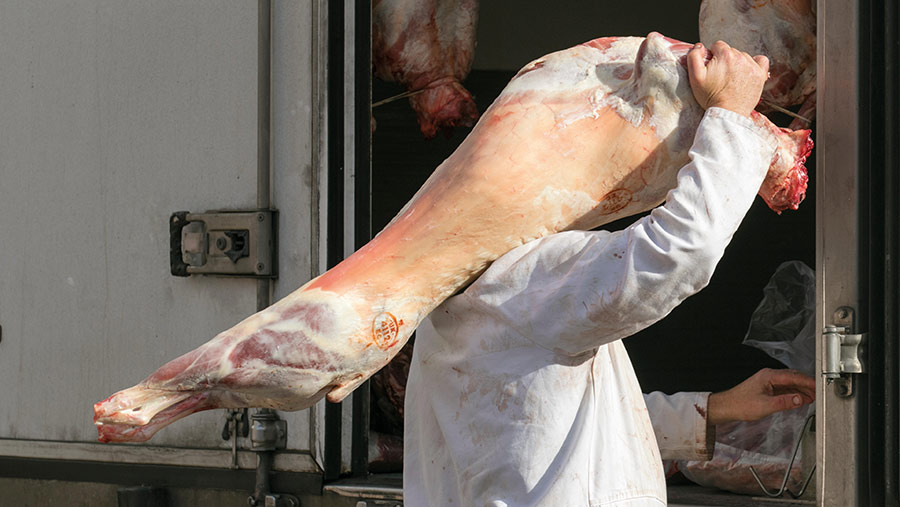Abattoir closures hurting farm businesses across the UK
 © Media World Images/Alamy Stock Photo
© Media World Images/Alamy Stock Photo Falling numbers of small, local abattoirs are forcing some farm businesses to call it a day, as finding alternative outlets for finished livestock pushes up costs and journey times.
A new survey by the Sustainable Food Trust and National Craft Butchers has found that the loss of small abattoirs – which have been closing at a rate of 10% a year – has left farmers reliant on only a handful of remaining operators, and a system that is “vulnerable to collapse”.
See also: Mark Spencer announces small abattoir aid
Some animals from remoter areas are now travelling more than 200 miles to slaughter, the survey found, while many farmers reported that remaining smaller abattoirs are increasingly busy and difficult to book into.
One farmer on Orkney said: “Since Orkney abattoir closed in 2018, the situation here is dire – most of the free-range, rare-breed pig farmers have closed down.
“The next nearest abattoir costs us more than £250 just for the ferry taking a trailer that can hold a maximum 20 sheep, then there is the 30-mile drive to the port and the 110-mile drive to Dingwall.”
Another customer of Tottingworth abattoir in East Sussex, which closed last year, said: “In the South East, there are so few abattoirs left that losing any more would prevent sales and increase food miles.”
Government funding
National Craft Butchers boss Eleanor O’Brien pointed to the recent promise of government funding for the small abattoir sector.
Speaking at the NFU’s annual conference in February, Defra farming minister Mark Spencer had indicated that financial assistance would be forthcoming to help abattoirs add value, provide equipment and support local food networks.
But no specific sum was mentioned, only a promise that details will be announced “later this year”.
Ms O’Brien said discussions were ongoing through Defra’s Small Abattoir Working group, though she hoped it would include funding for technological advances and to facilitate the handling of horned cattle.
Equally important was the need to ease the regulatory burden on small abattoirs – for example, by implementing the EU’s “5% rule”, which would allow those handling more than 1,000 livestock units a year some extra throughput before requiring them to employ a full-time vet.
A Defra spokesman insisted the government remained committed to launching a grant scheme this year, with a focus on funds for capital items that would improve productivity, enhance animal welfare and secure supply chain resilience.
Mobile abattoirs should also qualify for future grant funding.
Main survey findings
- 88% said their closest abattoir is either “essential” or “important” to their business
- 64% felt the lack of a local abattoir impacted their business plans
- 64% would be interested in co-operatively-owned abattoirs
- 81% were interested in mobile abattoirs
- 73% said they would pay more for this service
